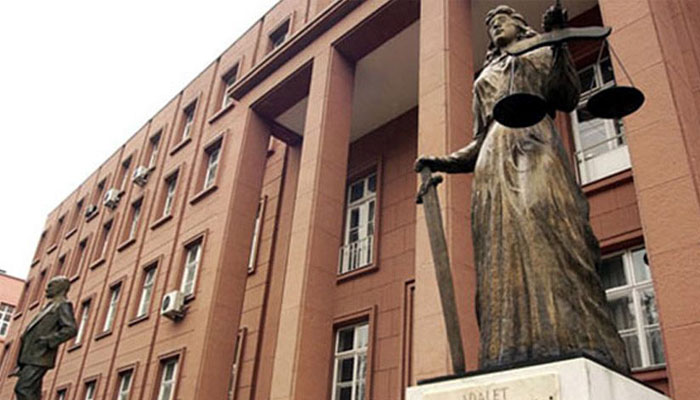The Turkish judiciary is facing a crisis as the Supreme Court of Appeals has defied a Constitutional Court (AYM) ruling for the second time in the case of Can Atalay, a lawyer and rights activist who was elected to parliament in May.
Despite acquiring parliamentary immunity, Atalay has remained incarcerated, leading to a growing legal and political controversy.
Counsel for Atalay, who was elected to parliament in May from the Workers Party of Turkey (TİP), petitioned the top court to once again rule that Atalay’s right to a fair trial, the right to elect, stand for election and engage in political activities as well as his right to liberty and security are being violated. The lawyers asked the court to put an end to the violations suffered by Atalay, which would mean his release from prison.
The AYM had ruled that Atalay’s rights were violated due to his continued incarceration, despite acquiring parliamentary immunity. The 13th High Criminal Court, however, sent the case back to the Yargıtay, defying the AYM’s rulings.
The 3rd Criminal Chamber of the high appeals court again decided not to comply with the AYM decision. It stated that “the second violation decision” of the AYM “has no legal merit.” The chamber labeled the decision “juristocratic” — rule or governance by the judiciary or court system — in nature.
The AYM had ruled in favor of Atalay on October 25, asserting that Turkey had violated Article 67 of the Turkish Constitution, which concerns the right to elect, stand for election, and engage in political activities, as well as Article 19, involving the right to liberty and security. Atalay was also awarded TL 50,000 in non-pecuniary damages in line with the court’s ruling.
However, the Supreme Court of Appeals, which upheld an 18-year conviction for Atalay in the Gezi Park trial in September, defied the AYM’s ruling at the time. This decision has sparked widespread criticism and accusations of a judicial coup. The appeals court judges even filed criminal complaints against the members of the AYM due to their ruling in Atalay’s case, marking an unprecedented move within the Turkish legal system.
The Turkish judiciary faces widespread criticism for its perceived lack of independence. Critics accuse President Recep Tayyip Erdoğan of exerting control over the judiciary and establishing one-man rule in the country, particularly after a coup attempt in 2016, following which he launched a massive crackdown on non-loyalist citizens and the country’s subsequent transition to a presidential system of governance, which granted him vast powers.
Many say there is no longer a separation of powers in the country and that members of the judiciary are under the control of the government and cannot make judgments based on the law.
In a development that validated the critics, Turkey was ranked 117th among 142 countries in the rule of law index published by the World Justice Project (WJP) in October, dropping one rank in comparison to last year.
